Parents Should Pay Fees if Schools are to Survive Beyond Covid 19. Dr. Natasha Ridge, Al Qasimi Foundation, Speaks Out.
Background: Parents Should Pay Fees if Schools are to Survive Beyond Covid 19. Dr. Natasha Ridge, Al Qasimi Foundation, explains the real long terms risks to families and UAE life if schools close.
As sudden changes have swept across the world’s education system, it is no wonder that parents are feeling overwhelmed and emotional about the new online schooling regime implemented in the face of a global pandemic.
The usual comfort of kids going to school and parents getting on with their work or domestic routines, has disappeared and for longer now than most had hoped.
Working from home is proving challenging for kids and parents, who are suddenly all trying to make the new system work from the confines of the home. UAE schools will only reopen again after the summer break.
Many parents too are facing unemployment and loss of income. Whilst many schools have offered fee reductions for Term 3 fees, this is of little help to families facing a complete collapse of income.
To get a new perspective on all these issues, SchoolsCompared.com spoke with Dr Natasha Ridge, Executive Director of the Sheikh Saud bin Saqr Al Qasimi Foundation for Policy Research. Dr Ridge has more than two decade’s experience in education and has played a key role in advising governments and pioneering educational research to guide policy.
In the following, Dr Ridge sets out the many reasons why parents who have not been impacted by Coronavirus Covid 19 must try everything they can to find the school fees – and pay them in full.
Distance Learning is not the Issue that should be Worrying us….
While Distance Learning does not deliver the same quality of education, Dr Ridge argues that this is not an issue that should be used to argue for reductions in fees.
Instead we need to focus on families in need and our school’s survival.
First and foremost, if we are to get through Coronavirus Covid-19, all of us are in this together:
“It must be a community effort. This means we need to help families who are in financial difficulty – and protect our schools and their ability to continue operating.”
Dr. Ridge says that:
- the most vulnerable students must have their education safeguarded;
- teachers and schools need to be supported for schools to survive beyond the worst pandemic of our generation – and one that has wreaked economic havoc globally.
Dr Ridge argues that the debate on fees – to pay or reduce them – “must be acknowledged from both sides” for a peaceful path between schools and parents to continue and relationships not be damaged.
“From the parents’ perspective, many have seen their income streams reduced. It’s not just the fact that the parents don’t want to pay fees, but a lot of them can’t pay fees. In some cases, for example, a family member is in the hospital, or needs continuous care – in other cases family members have been made temporarily redundant.”
“You know ….. it could be a myriad of reasons that household income has also depleted,” Dr. Ridge continues, explaining that it is vital to differentiate between differing income brackets:
“For those expatriate families at the lower end of the scale, they’re very vulnerable to any kind of economic shock such as job loss or recession. From our research at the Foundation, we found they’re usually the families paying a higher percentage of their household income towards education. These families too are very unlikely to have a package that includes employer-paid schooling for their children’s education.
So again, they’re already spending large amounts of their income on education. Suddenly they don’t have employment through no fault of their own. These parents want to pay, but simply can’t.”
Wealth redistribution for those in need
The focus, Dr. Ridge argues, must be on low income families. These are often, but not exclusively, Asian expatriate families. These families are using up as much as fifty percent of their total income on schooling. This compares with an average of around ten percent of income for wealthier Western expatriate families.
For low income families, Dr Ridge argues, there must be solutions:
“For these kinds of families, if there’s a job loss, then really they don’t actually have that money anymore. They have nowhere left to turn.
These families may be forced to take their children out of school and there are not enough charity schools in the UAE able to take in the mass of children which may be left without being able to pay school fees in the wake of this crisis.
In those cases, at that extreme end, I think schools need to, at the least, defer fees.
Schools have a duty, I think, to avoid any child being evicted from their school because of the consequences of Covid 19.”
Parents do need, however, to understand the real challenges being faced by schools:
“Obviously, schools need fee income to pay teachers, it needs to pay support staff, it needs to pay electricity, water, you know, the basic things.”
Notwithstanding this, however, Dr Ridge argues that:
“In terms of fees I think there needs to be different models according to people’s ability to pay.”
Why Parents who are less impacted by Covid 19 Must Pay Fees
There is growing evidence that schools are cutting Term 3 fees. Competition between schools to cut fees is intensifying – but this risks damaging school viability in the long term.
Dr Ridge argues that where parents have not been impacted by Covid 19, they should do all they can to continue paying fees as usual. If being in this together means anything, it means that those who are in a position to pay fees, should continue to do so. Wealthier parents need to help those that, through no fault of their own, are not in such a position – and by doing this they will ensure the survival of schools for their own children.
Dr Ridge says:
“I think this is also a time where we need for people who have more to give extra to school.
So, for example, if you’re from a family where your children’s school fees are already paid by your employer and your job is fairly safe, maybe you can donate some of the fees for a student who’s from a really poor, struggling family.
I think that as a community we should be seeing the crisis as one in which we’re in it together, not one in which schools are against parents, or parents against schools. The danger of the current situation is that parents are getting increasingly upset with schools for retaining fees whilst delivering a very different education through Distance Learning. This misses the point that school’s costs have not fallen. In many cases schools and teachers are working even harder – and their costs are rising.
Our schools are not buildings – they are communities. Communities consist of parents, children, teachers, administrators, owners and operators.
The key question is how, as a community, we can we come together to ensure that the most vulnerable students can stay in school, that teachers’ jobs are protected, support staff jobs are protected – and that, ultimately, our schools can pay their own bills and survive.”
Schools Need to be More Transparent with Parents
Dr Ridge says that many schools are not helping the situation. It is one thing to get into a battle as to who can reduce the fees the most. But the real issue is helping parents understand what the impact of the Coronavirus Covid-19 crisis is having for schools – and how they need parents to work with them for the security of their own children when we all get beyond the pandemic.
“What parents need, right now, and more than ever, is transparency from schools.
Parents need to be shown what exactly their fees are needed for.
Parents, I think, would feel a lot more comfortable if schools made at least their general budgets available to parents so that they could see how much is spent on salaries, facilities and overheads.
I think, for parents, even if it’s hard to pay, they would at least understand where their money goes.”
Dr. Ridge continues:
“I think if school operators started sharing a bit more about financials – and also demonstrated that both that they are not making a profit from the crisis and making some kind of concessions such as fee cuts or even salary cuts at the senior levels, this would go a long way towards building good will and trust between them and the parents. Parents should not be paying the price of Coronavirus Covid 19 alone.”
Many parents are currently asking, with Distance Learning, whether they are getting value for money when they are having to teach children from home with no facilities, no ECAs and no physical teaching or support.
Dr Ridge admits, that realistically, the answer is probably not:
“Even though teachers, schools and authorities are really trying their hardest, nobody was fully prepared for this.
Online education at this scale, and for this duration, has not been tried or tested before.
I don’t think children are getting the same quality of education that they would be getting if they were in a classroom, regardless of how great the school is or how hard the teachers are working.
I think that, in these circumstances. there is a limit to how much can be learned online in isolation. And schools must understand that parents know this. They need to be transparent with parents. Trust is needed – and quickly.”
There are some schools that are making the promise to support vulnerable families by means testing, whilst refusing to cut fees. But for this to work, schools need to open their books and commit to removing profit whilst the Coronavirus plays out. Otherwise many parents who are paying full fees for a reduced education will continue to feel aggrieved.
Schools do Need the Support of Parents.
It is also important for parents to remember that private schools in the UAE are not government subsidised. They are not in the same position as schools in other countries such as the UK or Australia, says Dr Ridge, where the state subsidises schools in both the state and private sector.
Dr. Ridge argues that although parents might feel like schools are overpriced, this is rarely the case today, particularly as competition between schools has grown.
“Yes, schools make money. But I don’t think they’re massively overpriced. They are priced according to the market and the cost of hiring teachers, which is always the single biggest expense of any school. Often, the higher the fees, the better paid a school’s teachers.”
Teachers and school administrators are also working harder than ever, she says, and many are experiencing high levels of stress and mental health issues in the wake of the sudden and drastic changes.
Dr. Ridge urges parents to be compassionate and supportive with teachers and schools – and to remember that they too are doing their best under extenuating circumstances.
“They’ve said that they’re continuing distance learning until June, and yes, I think parents are going to feel pretty angry about having to pay. But, you know, it goes back to sustainability.
As parents, we need schools to thrive and not close. We need teachers who are good. We need to retain teachers and celebrate them.
We need to support each other currently, not complain and compare. We must all of us think in the long-term, for the greater good, rather than in terms of short-term discounts that could harm schools.”
Now more than ever, community support is key, she says, and for those who can, she calls on them to rally round for the greater good:
“I think that families from every background should make sure that if they can pay, they do pay their school fees and perhaps consider giving extra to schools and families that are struggling.
At this stage the schools need to stay open, and if parents want to have a quality education for their children to go back to after the Summer, we should not be driving schools into the ground now.
When schools finally reopen, schools need to be able to retain staff. Otherwise, good teachers might leave and find jobs somewhere else or go back to their home countries.
If schools lose too much income, there are risks to their survival. There are almost certainly risks to their ability to deliver the high standard of education for children we expect from them moving forward.
Schools could lose teachers. They will lose investment funds. They will lose budgets to recruit new teachers. Taken together schools could close.
Schools would almost certainly face teacher shortages. Teacher retention would become difficult – and we could face teacher shortages.
We all need to be taking the long-term view with our thinking from now on. If we do not, and if schools are forced to cut costs needlessly, then the risk is that our education system will take years to recover.”
SchoolsCompared.com Bottom Line: We Need to Help Families Who have been Financially Impacted by Coronavirus Covid 19. But We Must Also Protect Our Schools …
It is far too easy to see the “fire sale” of discounts that are flying around from schools currently as an easy way for parents to cut costs and get a good deal. Who does not like saving money? Schools are discounting fees for many reasons – but in the most part to placate angry parents who do not see why they should be paying for an education that is simply not being delivered through Distance Learning. One parent argued that “If you buy a new car and the dealer deliver a used one that breaks down, you should not expect to pay for the new car.”
The problem, in our view, with this approach is that Coronavirus Covid 19 has absolutely nothing to do with these analogies, including buying cars. The real issues we think are two-fold:
- ensuring that no child is evicted from school because their parents, through no fault of their own, lose the ability to pay the fees. This could happen to anyone of us.
- Ensuring that schools are not permanently damaged, or close, because of the financial impacts they face from parents refusing to pay fees.
We need to look after vulnerable families and schools.
Does this mean parents that have not been impacted by Coronavirus Covid 19 should refuse discounts offered by schools? We think that they should. But we also think that schools need to open-up their books to parents.
Currently we are seeing a battle to reduce fees in the sector. We are not sure at all whether this is the right approach. A 25% reduction in fees will not help the family who has no income at all through loss of employment. It helps many other parents at a time when they do not need it – and would in many cases far prefer to ensure that their schools survive and prosper.
To get through this, we need a commitment from schools to ensure that no child loses their place and that profit is not a driver during the crisis. Schools do need to open their books to parents. But we need a commitment from parents to pay the fees, in full, if they can.
And we need both parents and schools to be on the same side. Our children’s education is at stake – and that is what ultimately matters. Coronavirus Covid 19 will be over, and hopefully sooner rather than later. But opening schools that have been forced to close – or finding teachers to replace those who have returned to their home countries because salaries have stopped being paid, will be a much more difficult proposition – and hurt very child’s education far more in the medium and long term. The bad blood between schools and parents playing out on social media is doing untold damage that will not be easily repaired.
In our view, there is a significant lack of joined up thinking as schools scramble to reduce fees and parents clamour for schools’s to reduce them.
If we really are all in this together, we all, schools and parents, need to look at the bigger picture and find common ground.
To start, we think:
- Parents Should Pay Fees if Schools are to Survive Beyond Covid 19, if they are able to.
- No child should lose their place because of a parent’s inability to pay through no fault of their own.
- Schools must be transparent with parents about their budgets.
If we do not find a way of securing common ground, and quickly, it will be too late for some schools and some children.
Do we want to see schools closed permanently?
Do we want to see children having to leave schools?
We can afford neither to hurt our children or our schools.
Surely there can be no better foundations than these two imperatives for rebuilding from the crisis that has cost us all dearly – and in ways we shall be adding up in far too many years to come.
©SchoolsCompared.com. All rights reserved.











































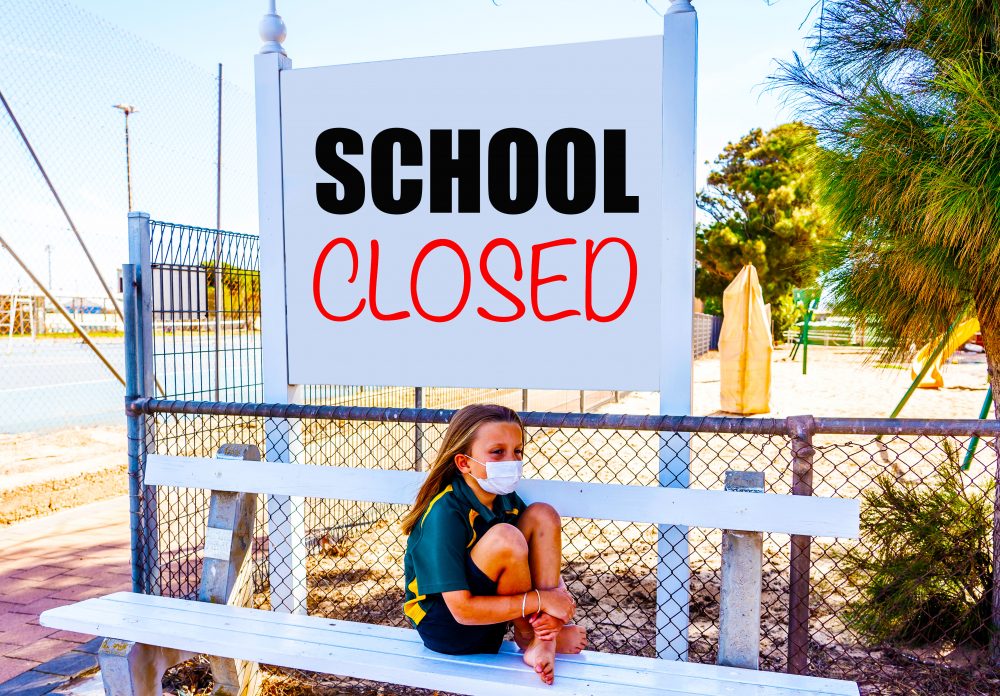
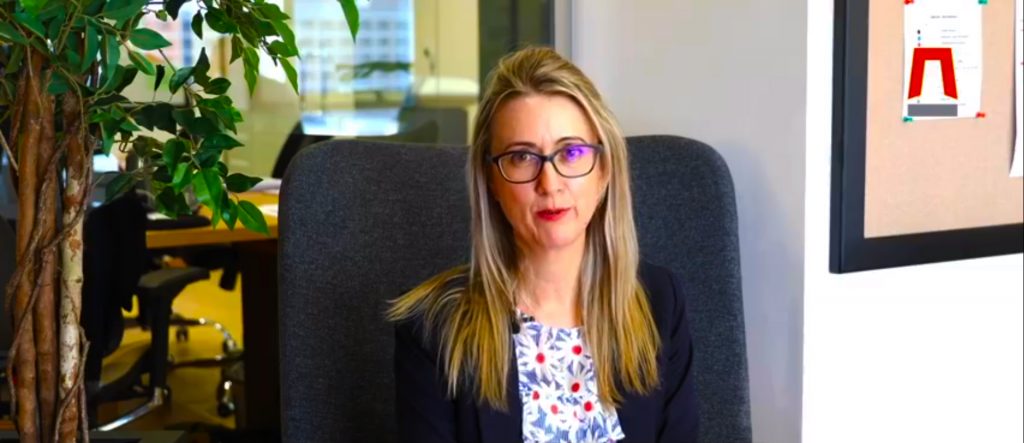

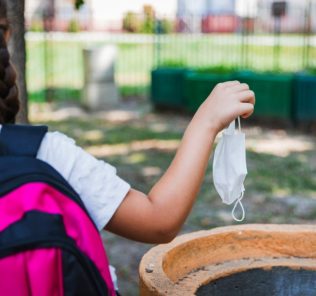




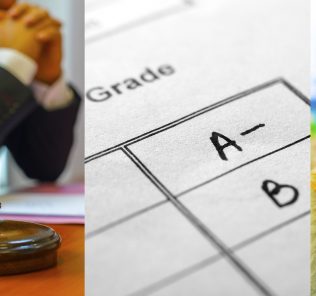






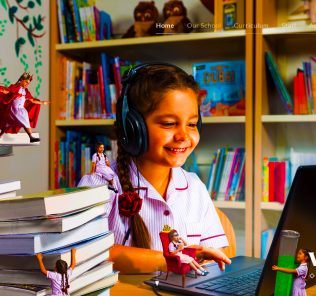

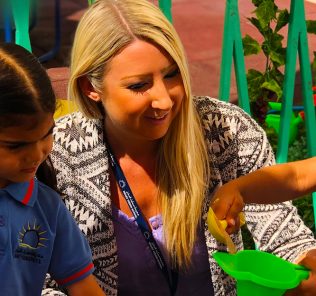















Just wondering if “we-are-in-this-together” really holds true if everyone is not willing to share some pain and only the parents are expected to (howsoever affluent they may be). If a parent has his / her salary cut by 25%, why shouldn’t the school faculty be willing to take a 5%-10% cut in their salaries?